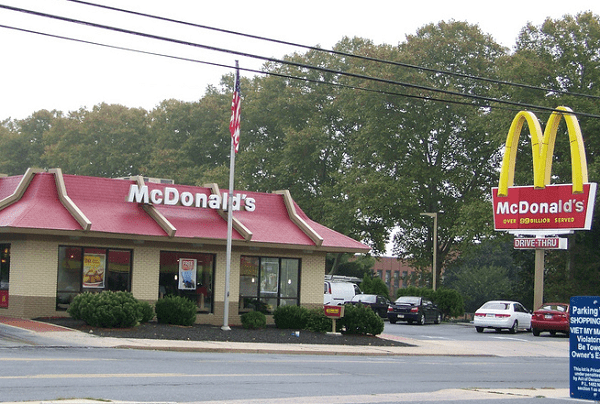McDonald’s Franchise Owners Settle Employee Compensation Lawsuit
Owners of numerous McDonald’s locations in the state of Pennsylvania are settling a claim that they violated state law by paying each hourly employee with fee-based debit cards. Luzerne County Judge Thomas F. Burke Jr. ruled in favor of the plaintiffs back in June 2015 and the state Superior Court upheld his decision. The court found this type of compensation is not “lawful money” or a “check” as Pennsylvania law requires.
According to the filing, the J.P. Morgan Chase payroll card given to an employee carried fees for almost every type of transaction, including a $1.50 charge for withdrawing money from an ATM, $5 for over-the-counter cash withdrawals, $1 to check the card’s balance, 75 cents for online bill payment and $10 per month after the card is left inactive for more than three months.
The whole case initially began after Natalie Gunshannon sued franchisee couple, Albert and Carol Mueller, four years ago. After she filed a lawsuit, the Muellers began to offer direct deposit and traditional checks as alternatives to the payroll cards.

However, their efforts proved to be too little too late. The owner’s hourly workers were charged the fees approximately 47,000 separate times from the fall of 2010 to summer 2014, according to data gathered by an expert witness. Only store managers received an option for direct deposit right from the get-go so they didn’t need to carry the cards.
Amid litigation, Chase voluntarily attempted to repay the employees any fees charged. “Our law firm became bombarded with telephone calls. All of the class members were getting a form letter from Chase saying, we have decided to refund you all of the fees you have paid Chase,” the plaintiffs’ attorney Michael Cefalo said. “We were shocked.”
The voluntary payments from Chase ranged from just a cent or two to as much as $148, according to Cefalo. However, the bank’s decision did not change the fact that so many employees were wronged. “Say I come up to you and I have an armed robbery, and then I say ‘I’m sorry, here’s your money back.’ I still committed a robbery,” Cefalo explained. “You still paid ’em the wrong way.”
Surprisingly, payroll cards such as those issued to the McDonald’s employees in Pennsylvania are still legal in many states, and in issuing his decision, Judge Burke himself acknowledged that Pennsylvania’s wage law was written in 1961 and that progress in payment technology since it was enacted complicates matters. He also asked the state’s Department of Labor and Industry to issue a formal administrative position on whether or not payroll cards that charge user fees are equivalent to cash or checks. The department’s statement may be used in future employee compensation cases.
Nearly 5 million workers were paid with bank cards in 2012 and this number has since risen steadily. In fact, the number is projected to be double that amount by the end of this year. Banks offer these cards partially in an effort to recoup lost profits from regulations that have been instituted which prohibit them from charging fees for standard debit cards.
Sources:
McDonald’s Owners Who Paid Workers With Debit Cards Settle
After Ruling That McDonald’s Can’t Pay Workers In Bank Cards, The Bank Pays Up


Join the conversation!